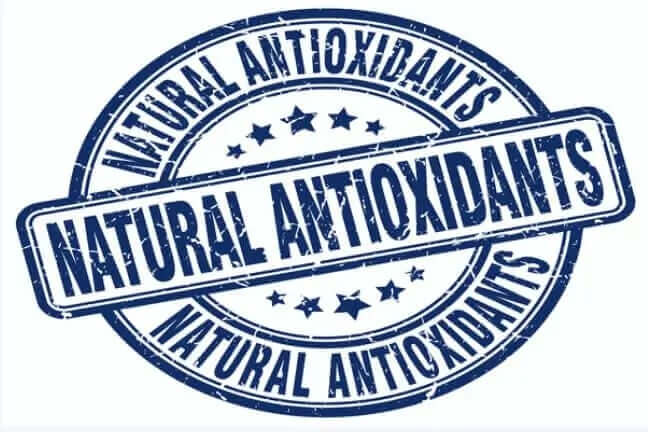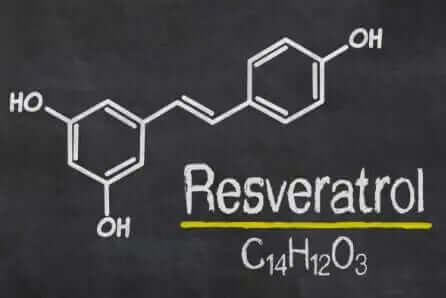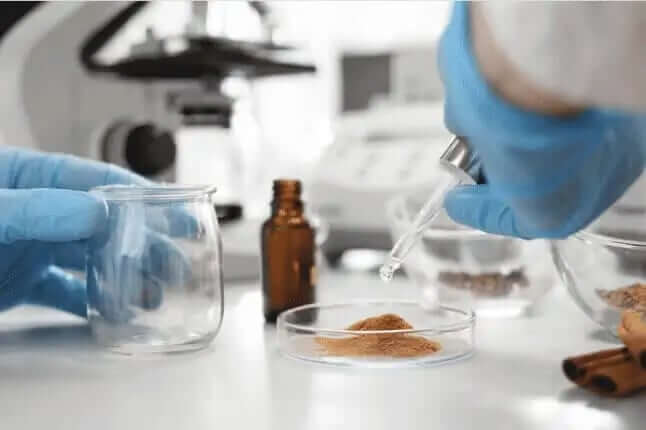Resveratrol: The Ultimate Guide to Nature's Most Powerful Antioxidant for Health and Longevity

Resveratrol stands as one of nature's most remarkable antioxidants, offering extraordinary health benefits that continue to amaze scientists and health enthusiasts alike. This powerful compound, naturally found in red grapes, berries, and certain plants, has captured global attention for its potential to enhance longevity, protect against disease, and promote overall wellness. If you're seeking a natural solution to boost your health and vitality, understanding resveratrol's incredible properties could transform your approach to wellness.
What Makes Resveratrol Such a Powerful Antioxidant?
The discovery of resveratrol as an antioxidant represents a breakthrough in natural health science. This polyphenolic compound acts as a cellular shield, protecting your body from oxidative stress and free radical damage. Unlike synthetic alternatives, resveratrol works harmoniously with your body's natural defense systems, providing comprehensive protection at the molecular level.
When examining how effective resveratrol as antioxidants truly is, research reveals its unique ability to activate specific longevity genes called sirtuins. These genes play crucial roles in cellular repair, metabolism regulation, and stress resistance. By stimulating these pathways, resveratrol helps your cells function optimally, potentially slowing the aging process and enhancing overall health.
Natural Sources of Resveratrol: Where to Find This Miracle Compound
Nature provides abundant sources of resveratrol, with certain foods containing particularly high concentrations. Red grapes lead the way, especially in their skins where resveratrol concentrations reach their peak. This protective compound helps grapes defend against fungi and microorganisms, offering similar protective benefits when consumed by humans.
Top Resveratrol-Rich Foods
- Red Wine: Contains over 600 micrograms per gram, making it the most concentrated dietary source
- Red Grapes: Particularly in the skin, seeds, and roots
- Peanuts: A surprising source of this beneficial compound
- Mulberries: Rich in resveratrol and other antioxidants
- Japanese Knotweed: Used extensively in Asian traditional medicine
- Blueberries: Contains moderate amounts along with other beneficial compounds
- Cranberries: Another berry source with multiple health benefits
The French Paradox: How Resveratrol Explains a Medical Mystery
The fascinating "French Paradox" has puzzled scientists for decades. Despite enjoying a relatively high-fat diet, French populations maintain surprisingly low levels of cardiac disease. The secret? Their moderate consumption of red wine, rich in resveratrol, appears to provide significant cardiovascular protection.
This phenomenon highlights resveratrol's remarkable ability to support heart health even in the presence of dietary challenges. By incorporating resveratrol-rich foods or supplements into your routine, you can harness these protective benefits regardless of your geographic location or dietary preferences.
Comprehensive Health Benefits of Resveratrol
The scope of resveratrol's health benefits continues to expand as research unveils new therapeutic applications. This versatile compound offers protection across multiple body systems, making it a valuable addition to any wellness regimen.
1. Powerful Anti-Inflammatory Properties
Chronic inflammation underlies many modern health challenges. Resveratrol's potent anti-inflammatory effects help calm systemic inflammation, potentially reducing the risk of various inflammatory conditions. This makes it particularly beneficial for those dealing with arthritis, skin inflammation, or general inflammatory aging (inflammaging).
2. Cancer Prevention and Support
Emerging research suggests that resveratrol may inhibit tumor growth by supporting the immune system's ability to identify and eliminate cancer cells. Its antioxidant properties help protect DNA from damage that could lead to cancerous mutations, while its anti-inflammatory effects create an environment less favorable to cancer development.
3. Cardiovascular Protection
Beyond the French Paradox, resveratrol offers multiple cardiovascular benefits:
- Reduces LDL oxidation, preventing arterial plaque formation
- Improves endothelial function for better blood flow
- Helps regulate blood pressure
- Supports healthy cholesterol levels
- Reduces blood clot formation risk
4. Brain Health and Neuroprotection
Resveratrol crosses the blood-brain barrier, providing direct neuroprotective benefits. Studies indicate it may help protect against Alzheimer's disease, Parkinson's disease, and age-related cognitive decline. By reducing brain inflammation and oxidative stress, resveratrol supports mental clarity and memory retention.
5. Anti-Aging and Longevity Enhancement
Perhaps most exciting are resveratrol's anti-aging benefits. Research has demonstrated up to 50% lifespan extension in certain animal models. While human studies continue, the mechanisms behind these effects suggest significant potential for promoting healthy aging and longevity in humans.
6. Metabolic Support and Weight Management
Resveratrol activates metabolic pathways that improve insulin sensitivity and glucose metabolism. This can support healthy weight management, reduce diabetes risk, and enhance overall metabolic health.
How to Maximize Resveratrol Benefits in Your Daily Life
Incorporating resveratrol into your wellness routine doesn't require dramatic lifestyle changes. Simple, sustainable strategies can help you harness its powerful benefits:
Dietary Integration
- Enjoy Red Wine Mindfully: Limit intake to 1-2 glasses daily for optimal benefits without negative effects
- Snack on Red Grapes: Choose organic varieties with seeds for maximum resveratrol content
- Add Berries to Meals: Incorporate blueberries, cranberries, and mulberries into breakfast or snacks
- Include Peanuts: A handful of peanuts provides resveratrol along with healthy fats and protein
Supplementation Strategies
For those seeking concentrated benefits, high-quality resveratrol supplements offer consistent, therapeutic doses. When choosing supplements, look for:
- Trans-resveratrol form (the most bioactive)
- Third-party testing for purity
- Appropriate dosing (typically 250-500mg daily)
- Synergistic ingredients that enhance absorption
The Science Behind Resveratrol's Effectiveness
Understanding why resveratrol works so effectively helps appreciate its value. At the cellular level, this compound:
- Activates SIRT1: The "longevity gene" that regulates cellular health and lifespan
- Stimulates AMPK: A metabolic master switch that enhances energy production
- Reduces NF-κB Activity: Decreasing inflammation throughout the body
- Enhances Mitochondrial Function: Improving cellular energy production
- Promotes Autophagy: The cellular cleaning process that removes damaged components
Real-World Success Stories: Resveratrol Transforming Lives
Countless individuals have experienced life-changing benefits from incorporating resveratrol into their health routines. From improved energy levels and mental clarity to better cardiovascular markers and reduced inflammation, the positive outcomes continue to inspire hope and motivation for those seeking natural health solutions.
Safety Considerations and Optimal Usage
While resveratrol demonstrates excellent safety profiles, mindful usage ensures optimal benefits:
- Start with lower doses and gradually increase
- Take with food to enhance absorption
- Consult healthcare providers if taking medications
- Choose reputable sources for supplements
- Monitor your body's response and adjust accordingly
The Future of Resveratrol Research
Scientific exploration of resveratrol continues to reveal new therapeutic applications. Current research focuses on:
- Enhanced delivery systems for better bioavailability
- Combination therapies with other natural compounds
- Specific applications for age-related diseases
- Personalized dosing based on genetic factors
- Novel extraction methods for increased potency
Making Resveratrol Part of Your Wellness Journey
Embracing resveratrol as part of your health strategy opens doors to enhanced vitality and longevity. Whether through dietary sources or targeted supplementation, this remarkable compound offers scientifically-backed benefits that support your body's natural healing and protective mechanisms.
The journey to optimal health becomes more achievable when you harness nature's wisdom. Resveratrol represents just one example of how natural compounds can profoundly impact our wellbeing, offering hope and practical solutions for those seeking to optimize their health naturally.
Frequently Asked Questions About Resveratrol
Is resveratrol really an effective antioxidant?
Yes, resveratrol is indeed a highly effective antioxidant with proven anti-inflammatory and protective properties. Scientific research confirms its ability to neutralize free radicals, protect cellular DNA, and activate longevity pathways. It offers protection against various diseases including cancer, diabetes, and Alzheimer's disease, while also providing excellent support for arthritis and skin health due to its powerful anti-inflammatory effects.
What is the best natural source of resveratrol?
Red wine contains the highest concentration of resveratrol among dietary sources, with over 600 micrograms per gram. However, red grape skins, particularly from organic grapes, provide an excellent alcohol-free alternative. Other valuable sources include peanuts, mulberries, blueberries, and Japanese knotweed. For therapeutic doses, many people choose high-quality supplements that provide concentrated trans-resveratrol.
How much resveratrol should I take daily for health benefits?
For general health benefits, most studies suggest 250-500mg of trans-resveratrol daily. If obtaining resveratrol from food sources, aim for 1-2 glasses of red wine daily or regular consumption of red grapes, berries, and peanuts. Always start with lower doses and gradually increase while monitoring your body's response. Consult with a healthcare provider for personalized recommendations based on your specific health goals.
Can resveratrol really help with anti-aging and longevity?
Research shows remarkable anti-aging potential for resveratrol, with studies demonstrating up to 50% lifespan extension in certain animal models. It activates sirtuins (longevity genes), enhances cellular repair mechanisms, and protects against age-related damage. While human longevity studies are ongoing, the cellular mechanisms suggest significant potential for promoting healthy aging, improved vitality, and extended healthspan in humans.
Are there any side effects or interactions with resveratrol?
Resveratrol is generally well-tolerated with minimal side effects when taken at recommended doses. Some people may experience mild digestive upset when starting supplementation. It can interact with blood-thinning medications and may affect estrogen-sensitive conditions. Always consult your healthcare provider before starting resveratrol supplements, especially if you take medications or have existing health conditions.
How long does it take to see benefits from resveratrol?
The timeline for experiencing resveratrol benefits varies by individual and health goal. Some people report increased energy and mental clarity within 2-4 weeks. Anti-inflammatory effects may become noticeable within 4-6 weeks. For cardiovascular and metabolic benefits, consistent use for 2-3 months typically shows measurable improvements. Long-term anti-aging benefits accumulate over months and years of regular use.
Can I get enough resveratrol from diet alone?
While dietary sources provide valuable resveratrol, achieving therapeutic levels through diet alone can be challenging. You would need to consume large quantities of red wine or grapes daily. A balanced approach combining resveratrol-rich foods with targeted supplementation often provides optimal benefits. This strategy ensures consistent therapeutic doses while enjoying the additional nutrients and compounds found in whole foods.
What makes resveratrol different from other antioxidants?
Resveratrol uniquely activates specific longevity pathways (sirtuins) that other antioxidants don't influence. It provides both direct antioxidant effects and indirect benefits by enhancing your body's own antioxidant systems. Its ability to cross the blood-brain barrier, modulate gene expression, and mimic caloric restriction effects sets it apart from conventional antioxidants, making it exceptionally valuable for comprehensive health protection.
Is resveratrol safe for long-term use?
Current research supports the safety of long-term resveratrol use at recommended doses. Many people have taken resveratrol supplements for years without adverse effects. Its presence in the human diet for millennia through wine and food consumption suggests good long-term safety. However, periodic consultation with healthcare providers ensures optimal dosing and monitors for any individual considerations.
Can resveratrol help with weight loss and metabolism?
Resveratrol shows promising effects on metabolism and weight management by activating AMPK, improving insulin sensitivity, and enhancing fat metabolism. It helps regulate blood sugar levels and may reduce fat storage while increasing energy expenditure. Combined with healthy lifestyle choices, resveratrol can support sustainable weight management and metabolic health, though it works best as part of a comprehensive wellness approach.
Conclusion: Embracing Resveratrol for a Healthier Future
The journey through understanding resveratrol reveals a compound of extraordinary potential. From its powerful antioxidant properties to its ability to activate longevity pathways, resveratrol offers a natural solution for those seeking to optimize their health and extend their healthspan. Whether you choose to increase your consumption of resveratrol-rich foods or incorporate targeted supplementation, this remarkable compound provides scientifically-validated benefits that can transform your approach to wellness.
As research continues to unveil new applications and benefits, one thing remains clear: resveratrol represents one of nature's most powerful tools for promoting health, preventing disease, and enhancing quality of life. By making resveratrol part of your daily wellness routine, you're investing in a healthier, more vibrant future filled with possibility and vitality.
To explore high-quality resveratrol supplements and discover more about optimizing your health naturally, visit our complete collection of wellness products.
Scientific References
- Resveratrol content and antioxidant properties of underutilized fruits. Journal of Food Composition and Analysis
- Effect of germination on resveratrol content of peanuts. Food Chemistry
- Resveratrol: A review of plant sources, synthesis, stability, modification and food application. Critical Reviews in Food Science and Nutrition
- Resveratrol in peanuts. Journal of Agricultural and Food Chemistry
- Resveratrol as an antioxidant and pro-oxidant agent. Free Radical Biology and Medicine







